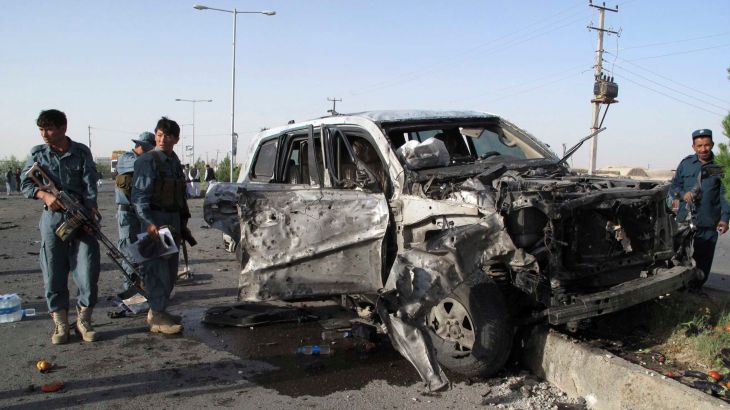
Can Afghans take the lead?
We analyse Afghanistan’s future challenges as American troops plan to withdraw from the country in 2014.
International soldiers are stepping back from Afghanistan after 12 years of fighting, and now Afghan forces will take charge.
It was a war born out of the co-ordinated attacks on the US on September 11, 2001. The American president at the time, George W Bush, called it the ‘war on terror’ – and it became synonymous with the hunt for Osama bin Laden. Twelve years later, the war in Afghanistan has reached a major milestone.
This journey was not ambitious enough in creating our security forces ... by definition of complete. It's not a complete security force. We still lack major sections of the military in terms of the operational aspects, in terms of intelligence, in terms of air force … so while it is an achievement it's not complete, and it is not total, and we have a long way to go.
It is the beginning of what is being called the fifth and final phase of the drawdown. Most international combat troops will leave Afghanistan by the end of next year, leaving an unspecified number in training and support roles.
Afghan security forces are taking over responsibility for the whole country, including many areas still considered volatile and dangerous.
While the drawdown has been gradual, in 2001, the US reaction to the 9/11 attacks was a swift one.
Within days, the US Congress passed a law authorising the use of military force against what it called “terrorists”.
On October 7, Operation Enduring Freedom began, attacking Taliban and al-Qaeda targets in Afghanistan.
The US-led operation was backed by Western allies, and justified as an act of collective self-defence – but it was not authorised by the United Nations Security Council.
By December, the UN agreed to the creation of an International Security Assistance Force, to take all measures necessary to help maintain Afghan security.
Six months after September 11, then President Bush laid out his vision for achieving peace in Afghanistan. He said it would mean helping the country to develop its own stable government, to train and develop its own national army, and to build an education system for both boys and girls that works.
Afghanistan has long been criticised for its deep levels of corruption. Latest figures from Transparency International rank it 174 out of 176 countries; unemployment stands at 35 percent, while 36 percent of the population live below the poverty line.
The World Bank has explained that 90 percent of the national budget is still financed by foreign governments and organisations. And NATO commander General Joseph Dunford is warning that could be under threat.
“The gains that we have made to date are not going to be sustainable without continued international commitment,” he declared.
So, has the war in Afghanistan been a success, and what will the country inherit after international forces leave?
To discuss this, Inside Story, with presenter Ghida Fakhry, is joined by guests: Daoud Sultanzoy, a former Afghan member of parliament; Mark Kimmitt, the former US assistant secretary of state for political and military affairs; and Sonia Eqbal, a member of the Afghanistan 1400 civil and political movement,
|
“The military has come a very, very long way … But I think it’s important to understand that just because we now have the Afghans in operational lead, does not mean that militaries of the other nations are walking out the door, or sitting behind bunkers, and not doing anything. Afghan forces will have the lead, [but] the coalition forces will still be in support, capable of running operations for a period of time. Even beyond 2014, there will be a residual force that will be there to help the Afghan military. Plus, the nations have a committed as a part of the Chicago process to provide the funding for a number of years … and to continue training and mentoring … [so] what is happening is simply part of the transition – but it’s a transition and not a complete handover.” – Mark Kimmit, former US assistant secretary of state for political and military affairs |